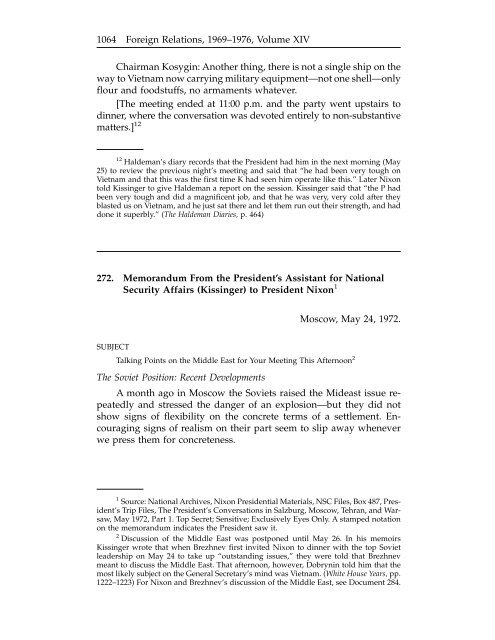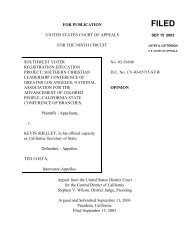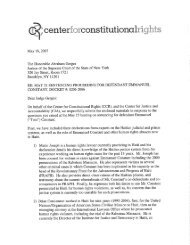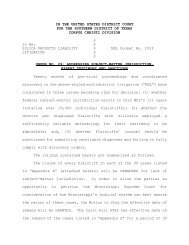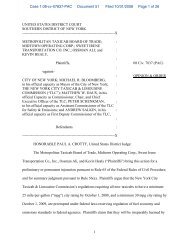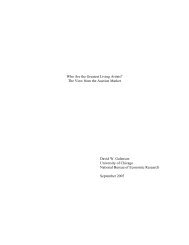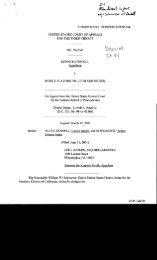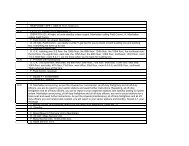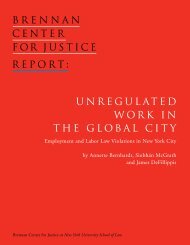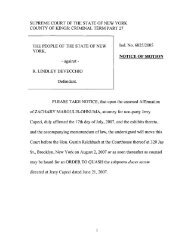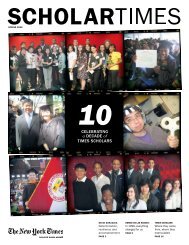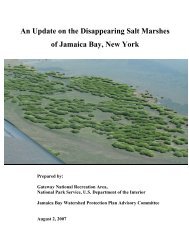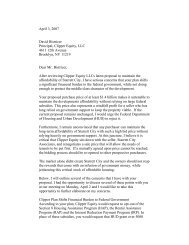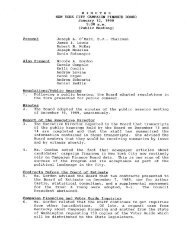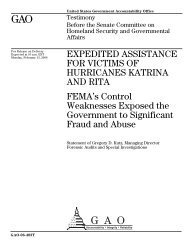271. Memorandum of Conversation1 Moscow, May 24, 1972, 7:50 ...
271. Memorandum of Conversation1 Moscow, May 24, 1972, 7:50 ...
271. Memorandum of Conversation1 Moscow, May 24, 1972, 7:50 ...
Create successful ePaper yourself
Turn your PDF publications into a flip-book with our unique Google optimized e-Paper software.
1064 Foreign Relations, 1969–1976, Volume XIV<br />
Chairman Kosygin: Another thing, there is not a single ship on the<br />
way to Vietnam now carrying military equipment—not one shell—only<br />
flour and foodstuffs, no armaments whatever.<br />
[The meeting ended at 11:00 p.m. and the party went upstairs to<br />
dinner, where the conversation was devoted entirely to non-substantive<br />
matters.] 12<br />
12 Haldeman’s diary records that the President had him in the next morning (<strong>May</strong><br />
25) to review the previous night’s meeting and said that “he had been very tough on<br />
Vietnam and that this was the first time K had seen him operate like this.” Later Nixon<br />
told Kissinger to give Haldeman a report on the session. Kissinger said that “the P had<br />
been very tough and did a magnificent job, and that he was very, very cold after they<br />
blasted us on Vietnam, and he just sat there and let them run out their strength, and had<br />
done it superbly.” (The Haldeman Diaries, p. 464)<br />
272. <strong>Memorandum</strong> From the President’s Assistant for National<br />
Security Affairs (Kissinger) to President Nixon 1<br />
SUBJECT<br />
<strong>Moscow</strong>, <strong>May</strong> <strong>24</strong>, <strong>1972</strong>.<br />
Talking Points on the Middle East for Your Meeting This Afternoon 2<br />
The Soviet Position: Recent Developments<br />
A month ago in <strong>Moscow</strong> the Soviets raised the Mideast issue repeatedly<br />
and stressed the danger <strong>of</strong> an explosion—but they did not<br />
show signs <strong>of</strong> flexibility on the concrete terms <strong>of</strong> a settlement. Encouraging<br />
signs <strong>of</strong> realism on their part seem to slip away whenever<br />
we press them for concreteness.<br />
1 Source: National Archives, Nixon Presidential Materials, NSC Files, Box 487, President’s<br />
Trip Files, The President’s Conversations in Salzburg, <strong>Moscow</strong>, Tehran, and Warsaw,<br />
<strong>May</strong> <strong>1972</strong>, Part 1. Top Secret; Sensitive; Exclusively Eyes Only. A stamped notation<br />
on the memorandum indicates the President saw it.<br />
2 Discussion <strong>of</strong> the Middle East was postponed until <strong>May</strong> 26. In his memoirs<br />
Kissinger wrote that when Brezhnev first invited Nixon to dinner with the top Soviet<br />
leadership on <strong>May</strong> <strong>24</strong> to take up “outstanding issues,” they were told that Brezhnev<br />
meant to discuss the Middle East. That afternoon, however, Dobrynin told him that the<br />
most likely subject on the General Secretary’s mind was Vietnam. (White House Years, pp.<br />
1222–1223) For Nixon and Brezhnev’s discussion <strong>of</strong> the Middle East, see Document 284.


